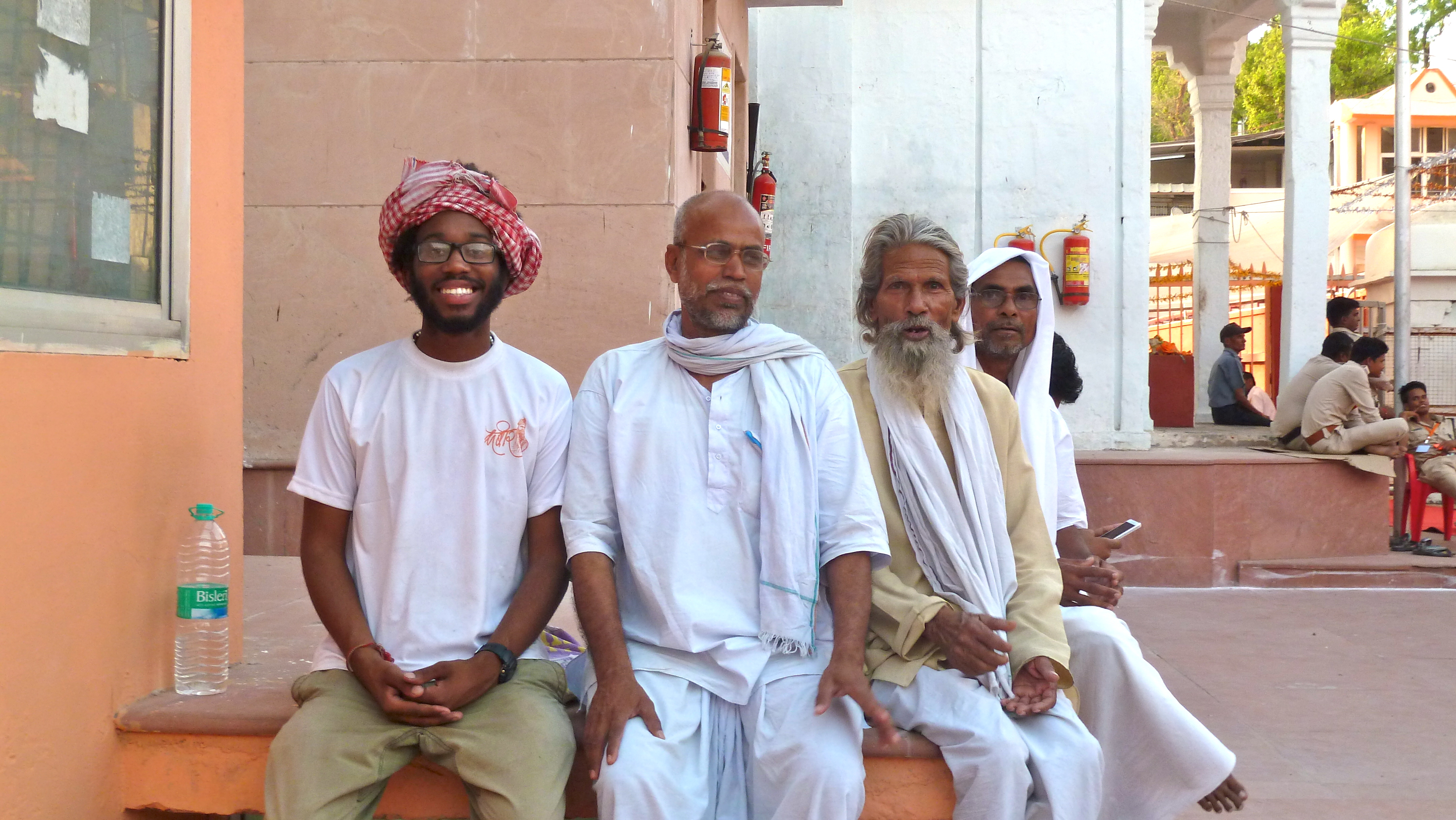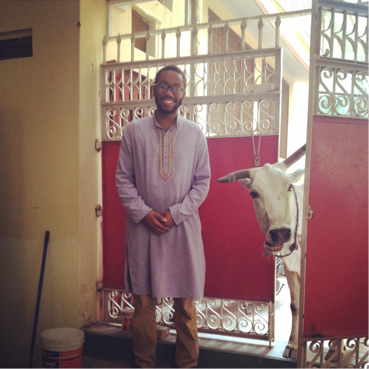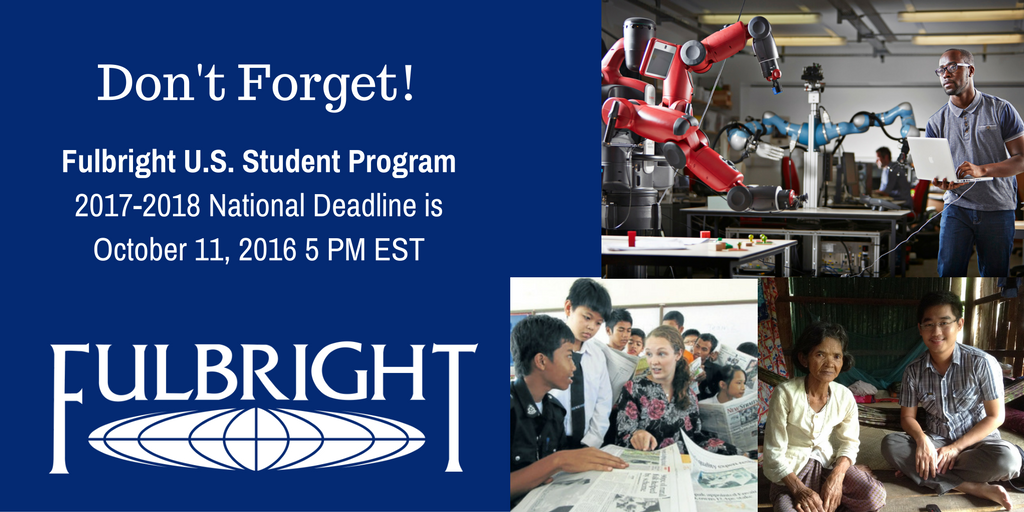
Benjamin Simington, 2015-2016, India (left), with several sadhus from different Kabir Panthi monasteries. They visited the famous Mahakaleshwar temple in Ujjain together during the Kumbha Mela pilgrimage.
Memory came to be a major theme of my research, along with my personal experiences with the Fulbright Program in India. My initial research project was titled Mahant with a Message: A Study of Sant Vivek Das Acharya. I wanted to focus on the life, religious activity, and socio-political vision of Sant Vivek Das Acharya, the head of the Kabir Chaura monastery of the Kabir Panth. The Kabir Panth is a monotheistic religious community in India rooted in the teachings of the medieval Indian poet-saint Kabir. The community has an emphasis on ideas of tolerance, personal spiritual practice, and the equality of all human beings.
As I continued with my research, the importance of ideas of memory became more and more salient. I eventually shifted my focus to look at how Kabir is remembered in the Kabir Panth through ritual, the space of the monastery, and through the poetry of Kabir in everyday conversation. The way that Kabir’s poetry functioned as a form of remembrance had great personal significance for me. Studying this facet of memory allowed me to experience the poetry of Kabir in a way that was not simply abstract. I was able to internalize it. Memory remains a vital part of the religious experience of the members of the community.

Benjamin Simington, 2015-2016, India, with a “special guest,” during his Hindi lesson in Varanasi, India.
My interactions with my friends in the Kabir Panth, my friends at Banaras Hindu University (BHU), and my Hindi teacher, all became indelible memories of my time in Varanasi. One of the common threads throughout these interactions was a willingness to share. I was able to learn more about the life of Kabir from my monk friends, more about student life from my friends at BHU, and more about how Varanasi had changed over time from my teacher. I was enthused to share my perspectives on African-American culture, history, and heroes with my different friends and teacher. It was important for me as a cultural ambassador to share those memories and narratives which are not as readily accessible to people not living in the United States.
The Fulbright Program continues to impact my life. I currently work as a Program Coordinator for National Fellowships at Texas A&M University. One of my primary duties is to advise students for fellowships like the Fulbright. I try my best to bring the wisdom I gained as a successful applicant to my advisees and help them convey their aims and their passions. I also keep a blog in Hindi in which I write about African-American History, the poetry of Kabir, and about compassionate and mindful living. Without the knowledge I gained from participating in the Fulbright Program, I would not have been confident enough in my language skills to start my Hindi blog. It gives me the chance to reflect, and whenever I write about anything related to Kabir, my mind goes back to memories of laughter and conversation with my friends in the Kabir Panth.
My Fulbright experience also helped to remind me of the importance of social media for human connection. WhatsApp and Facebook have been essential mediums through which I stay in contact with all of my friends in the Kabir Panth in India. I have been able to see Facebook posts of my monk friends traveling around the country for religious events and programs. Recently, the monastery hosted an event for International Yoga Day; it was great to see the community in Varanasi come together to promote wellness and spirituality. I even video-chatted a friend when he was visiting a village in the state of Chattisgarh; it brought back memories of green fields and fresh air of Northern Indian villages. I am so grateful to have been able to maintain these connections even after having been back for a year.
I offer three main points of advice to applicants: be confident in telling your story, be punctual in asking for necessary letters of recommendation, and revise, revise, revise! There is only one you. Tell your story with confidence. Recommenders need time to write their best for you, so do not prolong asking them. The revision process is essential for writing a successful application. It is invaluable to take your time going through your essays with a fine-tooth comb. Best of luck to all applicants!
Have questions for Benjamin about his Fulbright experiences in India and as a Fulbright Alumni Ambassador? You can reach him at B.Simington.alumniambassador@fulbrightmail.org.


No Comments